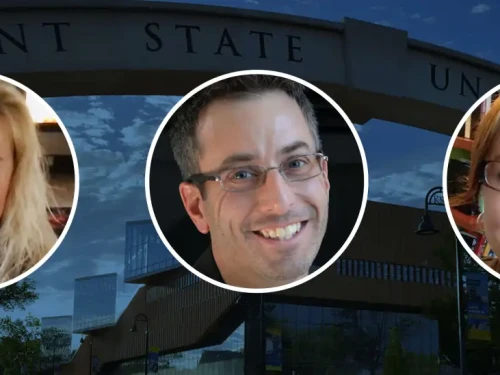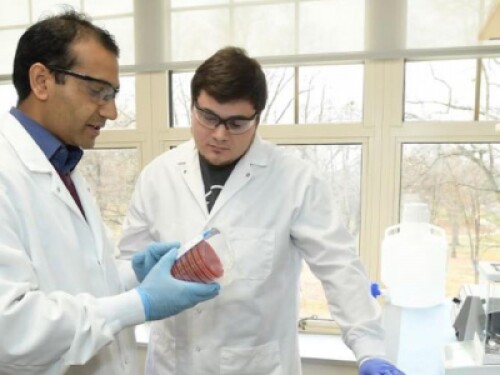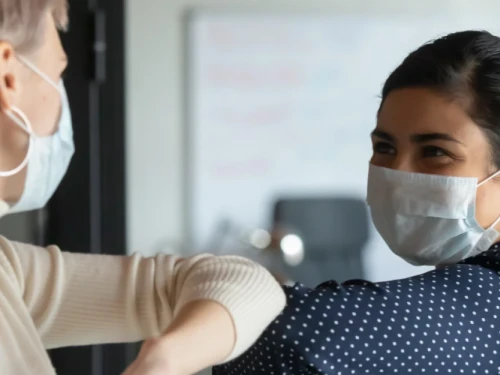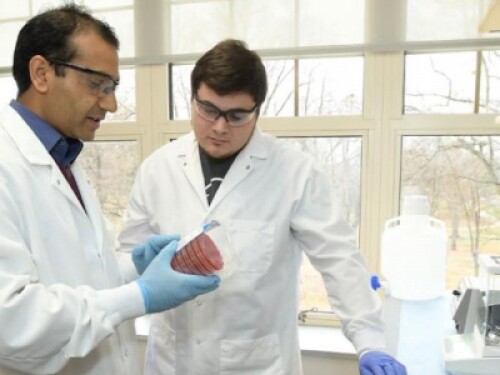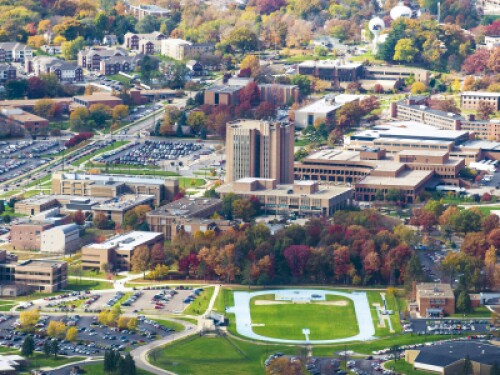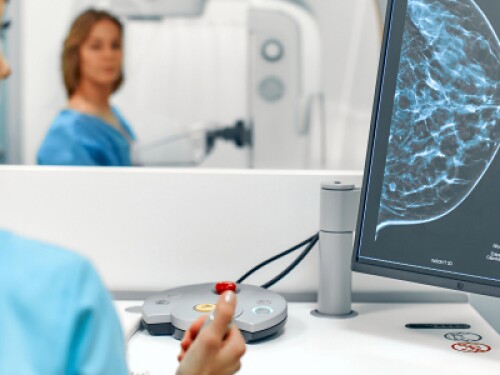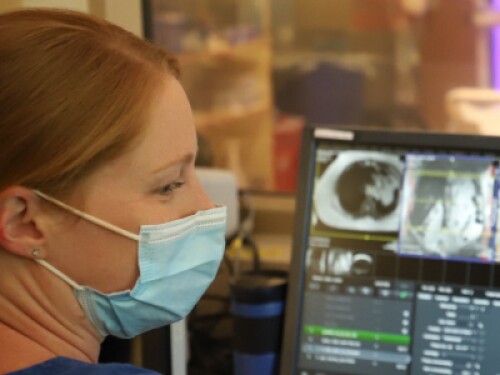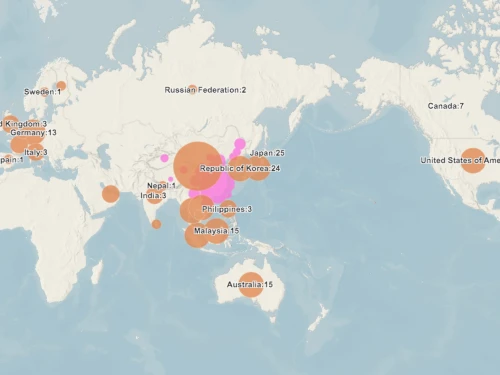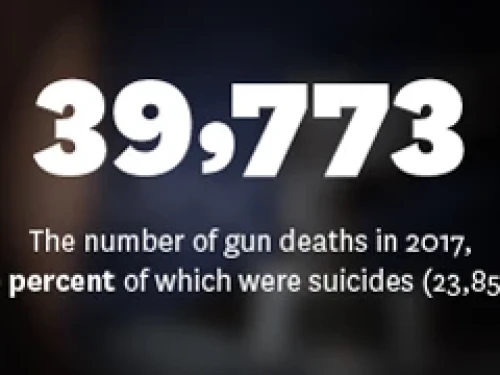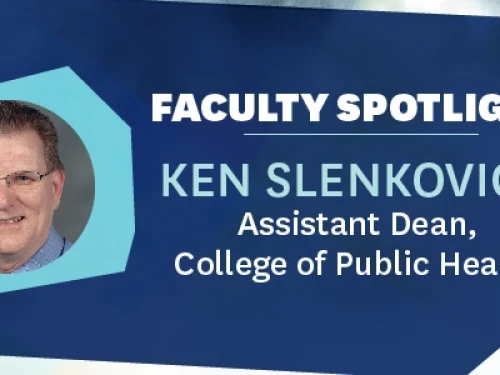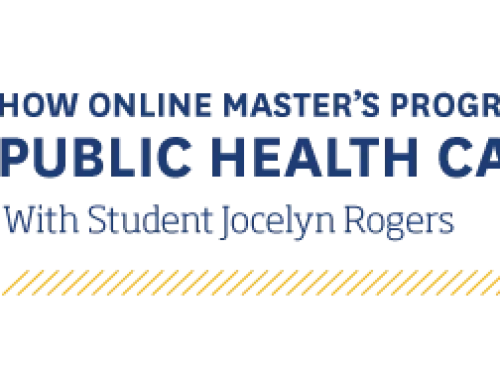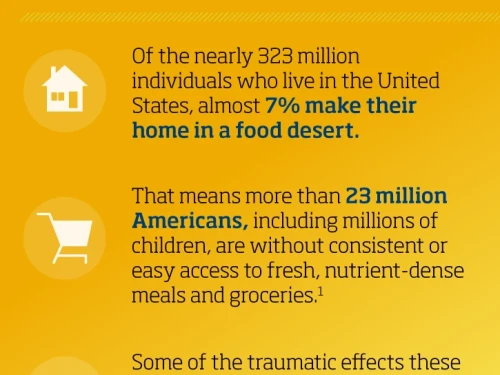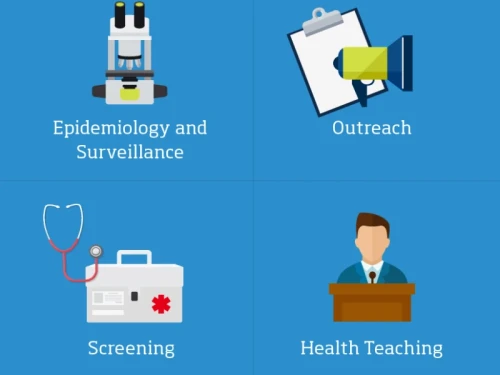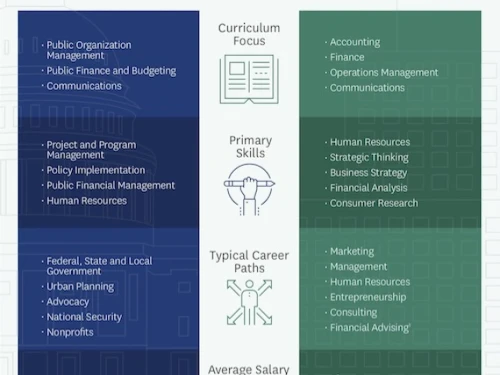Kent State Online Blog
Public Health
Learn about careers in public health, essential services, and innovative solutions to today’s health challenges. Discover how Kent State prepares students to lead in diverse fields like epidemiology, health informatics, and community health advocacy through online degree programs offered by the College of Public Health.
Related Blog Posts
We look at the importance of the MPH personal statement, and highlight four elements to consider when crafting a strong, engaging, effective statement as part of your application.
More than 60,000 Cleveland residents identify as lesbian, gay, bisexual or transgender.1 To better understand these residents’ needs, the Kent State University College of Public Health (CPH) launched the Greater Cleveland LGBTQ+ Community Needs Assessment project in March. The LGBT Center of Greater Cleveland serves as the primary community partner, and the Cleveland Foundation is providing financial support.
Kent State University’s College of Public Health (COPH) faculty are engaged in community-based, relevant research and public health programs, continuing the tradition of excellence and service that began when Kent State was founded as a public research university in 1910. In this post, we introduce you to three of the COPH professors who are actively engaged with their communities and their students, and with advancing knowledge in their areas of expertise.
I am a professor and the associate dean for Research and Global Affairs. I teach undergraduate, master, and doctoral-level courses. Most courses I teach focus on applying theory to developing, implementing, and evaluating community-based public health programs. I direct doctoral dissertations and advise MPH students. In my role as associate dean, I facilitate the research enterprise in the College, including pre and post-award activities, research compliance, and serve on university research-related committees. In addition, I develop research projects with other institutions abroad, faculty and student exchanges, and promote faculty and student research.
Health informatics is a vast and rapidly growing field that encompasses many areas of the healthcare industry.
Nationwide, there are more than 300,000 job openings for substance abuse treatment providers.
An increasing number of registered nurses have discovered that they need a bachelor’s degree in nursing to meet the complex challenges of today’s healthcare environment. The RN to BSN at Kent State University does just that. RN to BSN programs help nurses earn a bachelor’s degree and bridge the gap between an Associate degree in Nursing (ADN) and a Bachelor of Science in Nursing (BSN).
The term “telemedicine” describes the provision of remote medical assistance via telephone or video in times when a doctor cannot meet with a patient in person. Historically, with medical care commonly regarded as a practice that benefits most from in-person treatment for full efficacy, telemedicine has generally been considered a last resort. While industries outside of medicine enthusiastically embraced remote technologies throughout the 21st century, the adoption of telemedicine has been hindered by technological challenges, privacy concerns, high costs and a lack of perceived usefulness.1
Public health careers are broad and varied, and for those who are passionate about changing lives for the better, they present an immense opportunity to fill growing needs in the field. A Master of Public Health degree demonstrates your pursuit of advanced knowledge, desire to lead, and a set of professional skills needed to succeed in a variety of healthcare careers and public health roles.
Public health experts have never been more important than they are in the world today. From cancer to Ebola to COVID-19, major health events affect us all. As globalization, climate disasters and economic and social disruptions expand, we need trained professionals to help mitigate those threats. To meet health needs, public health professionals continue to serve and protect through research, policymaking and administration in the field of infectious disease preparedness and prevention. Specialists in the field of epidemiology are responsible for some of today’s most important public health research and data analysis.
As 2021 comes to a close, we’re taking a look at some of the top public health problems that faced the world in the past year. While some are more obvious than others, they all tie together to form a picture of the biggest challenges facing humanity today and give us a clue as to what to expect in the future.
The Centers for Disease Control and Prevention (CDC) define epidemiology as the study of the distribution and determinants of health-related states and events in specified populations.1 To complete this study of “health-related states and events”, scientists use a tool called the epidemiologic triangle, or the epidemiologic triad.
The Bureau of Labor Statistics estimates that healthcare positions will grow by 4.6 million by the year 2029 and that six out of the 10 fastest-growing occupations will be related to healthcare.1 Given recent global health events, it stands to reason that jobs in public health would be growing as well.
Epidemiologists are public health workers who investigate patterns and causes of disease and injury.
Get to know Kent State University even more through our vast array of blogs.
A mammographer has a very important role in the lives of women, as mammography is the primary means of early detection of breast cancer.
Magnetic resonance imaging (MRI) uses a large magnet and radio waves to look at organs and structures inside someone’s body. Health care professionals use MRI scans to diagnose a variety of conditions, from torn ligaments to tumors.1
Today, many Americans do not have access to mental health services, in part due to a lack of qualified mental health professionals. Nurses who become Psychiatric Mental Health Nurse Practitioners (PMHNPs) help bridge this gap and provide holistic care to those who are struggling with mental illnesses and addictions. PMHNPs are uniquely poised to expand education about, and access to, mental health care.
Join Kent State University in celebrating World Health Day on April 7, 2021, to build a fairer, healthier world.
Kent State University College of Nursing Interim Dean Denice Sheehan knows that healthcare is more in demand than ever.
Technology has changed almost every aspect of the way we live and work, including our approach to healthcare. Medical providers, clinical facilities and payers are increasingly adopting technology that can help them achieve the goals of higher-quality care at lower cost. Health informatics is a rapidly growing field, fusing the knowledge of technology with the desire to improve patient care. As the field grows, a competitive health informatics salary can be part of a fulfilling career.
Discover how mapping coronavirus transmission can prevent outbreaks in countries outside of mainland China.
Is gun violence a public health issue? Many Americans would have different answers to this. The truth is, it’s a complicated issue that brings out a lot of passion from each side. There are also political matters and bills that have been passed that have made solving this issue harder. So as we examine if gun violence is a public health issue, we’ll stick to the known facts. Let’s start by defining how our country determines what qualifies as a public health issue.
Ken Slenkovich is the assistant dean of Kent State University’s College of Public Health and program director for the school’s online Master of Public Health program. Leveraging his diverse experience as a public health professional, with research endeavors that have focused on the operations of local health departments and community health needs assessment methodologies, Asst. Dean Slenkovich has helped to elevate and enrich our nationally celebrated online MPH program, even authoring an award-winning course for the program.1
Public health careers appeal to different people for different reasons, just as certain universities make more sense for certain individuals. The university you choose should be a conduit through which you can achieve your aspirations, and there are many factors to consider in the selection process. For some the most important of these may be prestige, while others may weigh connections or affordability more heavily.
Of the nearly 323 million individuals who live in the United States, almost seven percent make their home in a food desert. That means more than 23 million Americans, including millions of children, are without consistent or easy access to fresh, nutrient-dense meals and groceries.1 It’s an alarming trend that has accelerated with other changes in modern cities, including suburbanization, growing socioeconomic inequality and increasingly inadequate public transportation. Some of the traumatic effects these food deserts have on public health include growing rates of chronic disease and obesity.
If “public health” refers to caring for the collective health of a population, then “public health economics” is the science of how a society takes on and manages this responsibility with limited resources. Public health policy is broad: While some of it does focus directly on healthcare, other areas as disparate as environmental protection, individual habit change and infectious disease control all contribute to the economics of public health.1 Studies indicate that there are economic benefits to preventing disease, not just for sick individuals, but for society at large.
Evidence-based public health interventions have saved millions of lives since 1854, when Dr. John Snow first identified a public water well as the source of a major cholera outbreak in London. In the decades since, public health interventions have been instrumental in improving the health and well-being of people in large and small communities.1
No matter the industry in which you plan to pursue employment, investing in a master’s degree can help you rise to the top of your organization. But not all master’s degrees are created equal.
Throughout the mid-19th century, clinicians noted the impact of socio-environmental factors on healthcare. From unusually high incidences of breast cancer in Italian nuns to cancers that only seemed to affect chimney sweeps in Great Britain, medical literature of the period carefully traced the connections between cultural background and wellness. This led some physicians to theorize that disease was strongly related to societal dysfunction and inequality, and that improving schools and working conditions could help to alleviate disparities in mortality across social classes.



